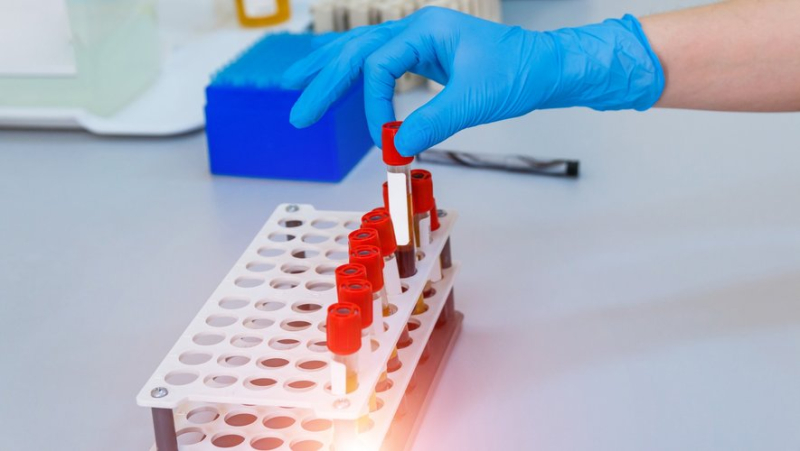Screening for Alzheimer's disease: this blood test which “showed the best results”, is more than 90% effective

Alzheimer : un test sanguin efficace à plus de 90 %
To detect Alzheimer's disease, there is no rapid test. The diagnosis is often made late, after a complete assessment of cognitive abilities. But researchers have identified biomarkers that could pave the way for a future blood test.
Today the diagnosis of Alzheimer's disease is based on a whole battery of tests and examinations: neuropsychological assessment, MRI, neurological examination, lumbar puncture…
Good results
Researchers are therefore currently working to identify new biomarkers in order to develop techniques that are less invasive and simpler to perform. This is the case of scientists from the Sant Pau Hospital in Barcelona who were particularly interested in a particular form of the Tau protein, P-tau217, already used as a biomarker for Alzheimer's disease in the cerebrospinal fluid. The team therefore decided to verify the interest of this biomarker in blood plasma.
By analyzing the data of 787 patients from three observation cohorts (one in Canada, one in the United States and the third in Spain), the researchers observed that this technique was effective with an accuracy of more than 90% in detecting the presence of Alzheimer's disease. Results showing that the P-tau217 biomarker offers accuracy comparable to cerebrospinal fluid biomarkers. A more accessible and less invasive alternative therefore, for a diagnosis – and therefore support – early onset of dementia.
For Dr Daniel Alcolea of the Sant Pau Hospital, "de all the biomarkers currently studied for the diagnosis of Alzheimer's disease, this one showed the best results".




